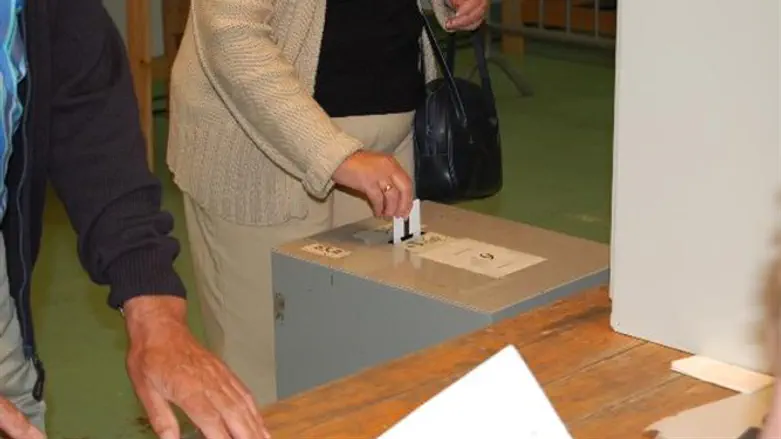
The vacation day on Election Day cost about NIS 2.5 billion to the Israeli economy. Attorney Daphne Shmuelevitz, an expert in labor laws who is a leader in the opposition to the concept spoke with Arutz Sheva about the issue.
"This [sum] is only the loss [to employers] for its payments to employees for a workday," Shmuelevitz said. "There is another NIS 2.5 billion that is incurred by the election day itself - payments to the employees at election committees and polling stations - which means that it is about NIS 5 billion - and that is a lot of money."
What options are there to prevent this huge financial loss? "We checked what other countries do and found out that a complete vacation day from work is not common," Shmuelevitz continued. "Some countries have elections on the weekends but that's not feasible for us due to Sabbath observance. Some countries allow leave during the workday at the expense of the employer but limits it to two or three hours."
"There are quite a few countries that use alternative means of voting. You don't have to vote at the voting station - you can vote online or by early voting in envelopes. There are alternative solutions. In Australia, you get a vacation day but you're obligated to vote and if you don't it's a criminal violation and you're fined. It's a small fine but is carries significance since it's punitive. In Italy, in the past, they would publish a list of people who didn't vote in the newspaper. They would use social shaming to encourage voting."
"When we check what the voting percentage is during the workday, we see that most voters arrive [at the voting stations] after 4 p.m. That means that you can work for a half a day or more and still exercise your right to vote."
Shmuelevitz adds that election days have become more frequent and vacation days are even taken on election days for local councils. And recently the law was amended to allow for a day off even on voting days for primaries, which means more days of loss to the economy.
Recently, a proposal came up that anyone who doesn't vote and fails to present a confirmation of voting from the election committee to their employer won't receive a vacation day and will be forced to bear the expense. However, Shmeulevitz added that the proposal was rejected because of opposition from the Histadrut and its representatives in the Knesset, as well as its past senior members who are in the Knesset, such as Minister Chaim Katz, Amir Peretz and Avi Nissenkorn.
"It came up about a year ago by Shraga Brosh, president of the Manufacturers' Association, but the Association didn't fight for it. It is impossible to promote such a move without the support of the largest labor organization - the Histadrut."
"A compromise in which the employer bears all the burden is very rare compared to other modern countries. I offer another compromise - half a day off - but not to lose an entire day's work over and over again at the expense of the employer," Shmuelevitz concluded.